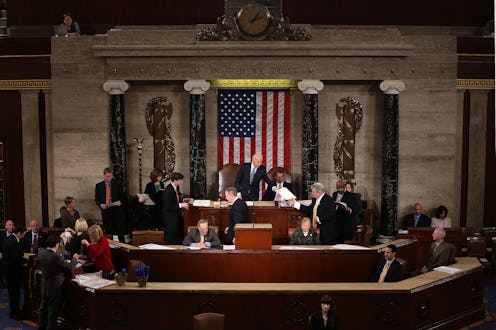News
The Electoral College Votes Can Be Objected To

Plenty a Democrat and the odd Never Trump Republican were hoping that the electors would band together and deny Donald Trump the required 270 Electoral College votes that he needed to become president. But, when the electors met in their respective state capitols on Dec. 19, just two Republicans cast their ballots for another candidate. So that would seem to be the end of the story — but there's actually one more chance for the Electoral College votes to be challenged. Have objections to vote counts happened before? Yes, and it could happen again when the votes are counted Jan. 6.
There are two instances in our nation's history when the Electoral College votes were objected to. But before I explain those, let's go over exactly how this works. For all or part of the Electoral College vote to be challenged, an objection must be made after the votes are counted on Jan. 6 in Washington, D.C. First, readers will go over all the votes that are received from the states. Then Vice President Joe Biden, serving in his role as president of the Senate, asks if there are any objections.
This is when they would be voiced — but it can only happen if at least one senator and one representative object together, because the rules require one representative be from each chamber. Then, if there is an objection, both the House and Senate hold separate sessions to discuss and vote on whether to uphold them. If both chambers vote in favor of the objection, the challenged portion of the Electoral College vote is thrown out.
Both of the prior objections happened in the last 50 years, and both times the objections were rejected by the House and Senate. The first was in 1969, the last time there were three competitive candidates in the race for Electoral College votes. Richard Nixon was running as the Republican, Hubert Humphrey as the Democrat, and then the third candidate was George Wallace, the segregationist candidate who won several states in the South. After the votes were read, there was an objection to the vote of one faithless elector in North Carolina. It was discussed and then defeated in both chambers.
The second instance is even more recent, in 2005, when George W. Bush beat John Kerry. That year there were objections to Ohio's Electoral College votes due to irregularities in the state on Election Day. Once again, both chambers discussed the matter but it was defeated by a vote of 267 to 31 in the House and 74 to 1 in the Senate. Those objecting claimed it was not to change the results of the race, but to bring attention to the need to update how elections in the state were carried out.
No one knows what will happen this year, but given Trump's contentious campaign rhetoric some Democrats might be interested. This would cause just a slight hiccup on the process to his inauguration, though. Since both the Senate and House are controlled by Republicans, the chance of Trump's Electoral College win being altered are slim to none.
But objections have been made before, so tune into C-SPAN on Jan. 6. Things could get interesting.